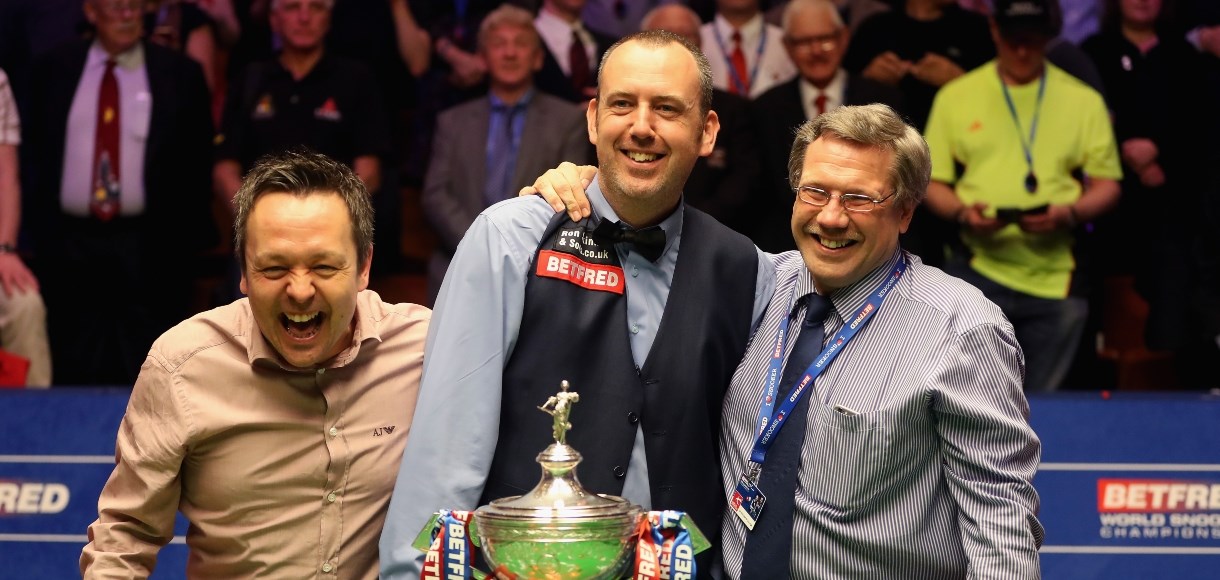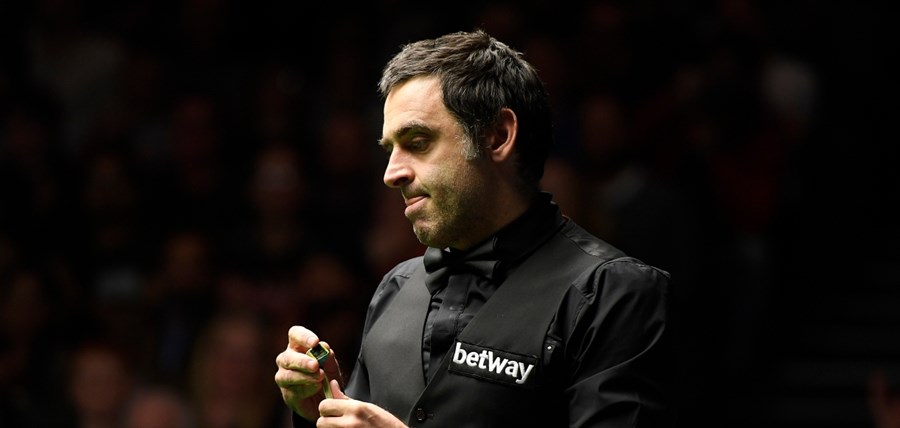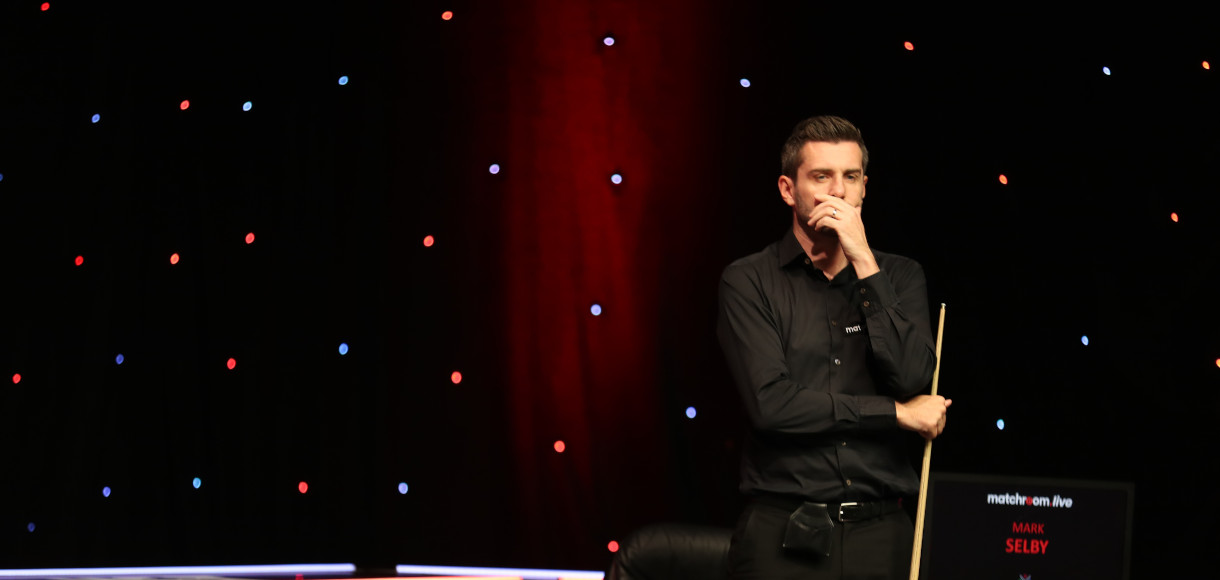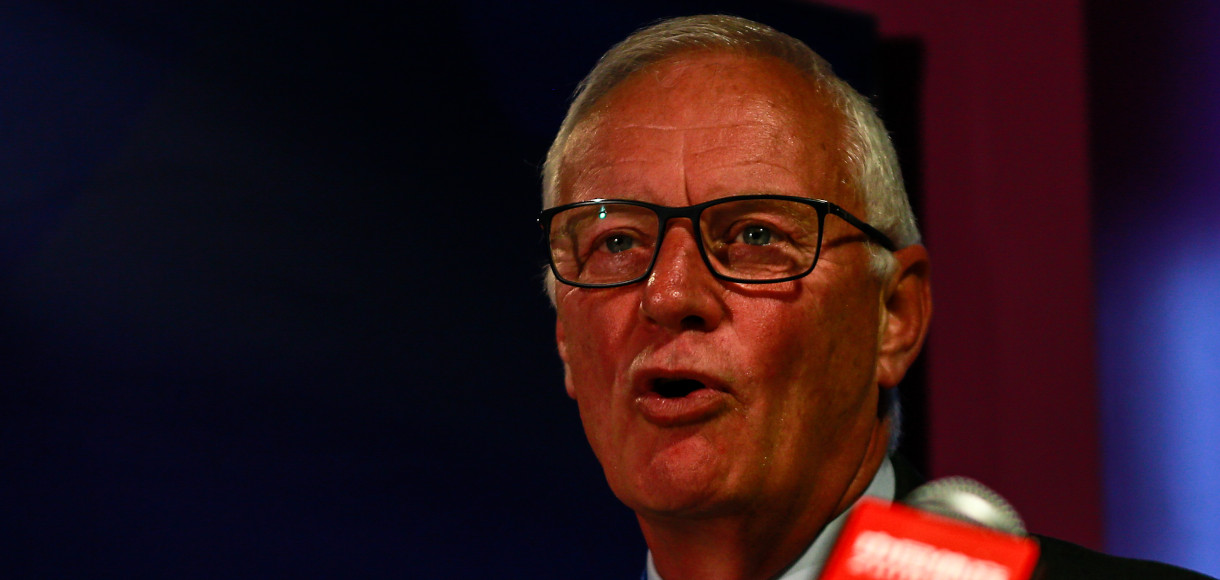Stephen Feeney on SightRight: 'Results speak for themselves'

The divisive snooker coach discusses being ridiculed on Twitter and how working with Ronnie O'Sullivan was the 'scariest but most exciting' time.
For somebody who has contributed so much to snooker, including two world champions, Stephen Feeney has had a lot to put up with.
His business, SightRight, aims to correct what he refers to as a “parallax error” in players, by adjusting their line of aim. Feeney claims that all players – even legendary ones – have been trained to sight across a shot rather than straight in line with it.
But his presence on the snooker tour has been divisive, with his methods respected by some - he is currently working with 11 professional players - and ridiculed by others, both in person and on social media.
SightRight was nicknamed 'SightWrong', but that was tame compared to being called a "sycophant" and "vulture" by some professional players online.
“I don’t know how I’ve managed to be resilient to some of the stuff I’ve seen,” Feeney says. “But it comes with the territory. I have to see that with my eyes wide open.”
It’s not hard to see why there are sceptics.
Telling people, not least world-class snooker players, that they’ve been getting it wrong all this time was never likely to go down well, not least when the traditional method of sighting shots was introduced by Joe Davis, who won the first 15 Snooker World Championships between 1927-1946.
“I’ve learned to understand that disruptive technology will always create huge opinions,” Feeney says. “The snooker tour is a goldfish bowl. People know each other and there are different thoughts on what I do.
“But when I first get together with players, I tell them: ‘I’ll open Pandora’s box.’
“Mark Williams, Matt Selt, Shaun Murphy and others would all say that everybody should be doing it. Why isn’t everybody? It’s because some people are happy to be where they are and are resistant to change.”
Murphy, for whom the SightRight methods are ingrained, agrees.
“We’ve all been taught to sight the ball out of a book written by Joe Davis nearly 100 years ago,” he says.
“Now you get a sense of which players are willing to look under each and every stone to find improvement and accept that they don’t know everything. That’s not always easy for human beings.
“It’s been amazing to watch how the older guard have been quite reluctant to even consider that there could be a better way of sighting a snooker ball.
“Who says Joe was right? What basis was he working off? That’s almost heresy to say that. If I were in the olden days I’d be getting my head chopped off for even suggesting it.”
He might be exaggerating, but the point stands.
Yet for Feeney, the days of painstakingly arguing his case are over.
“I’m more careful now,” he says, referring to the long arguments he used to have with players and supporters on Twitter. “I let the results speak for themselves.
“I’m 59-years-old. There are titles out there. If they want to see me, people can come to me.”
Feeney’s CV features 36 titles, and two world champions. The first was Stuart Bingham in 2015, and the second was Mark Williams, whose victory in 2017, when he had previously contemplated retirement, was what really raised Feeney's profile in the sport.
“In my first session with Mark, we actually laughed,” he says.
“Mark was gobsmacked. I asked him: ‘What price are you to win the Worlds?’ He said 66/1, so I set the stall out to be at least inside 20/1 by the time the tournament came around.
“The word got around pretty quickly. I know there were a lot of Welsh people who backed him to win it. He could still win another one.”
But Feeney’s methods were given the ultimate endorsement when Ronnie O’Sullivan, generally considered the greatest player ever, gave him a call in the summer of 2018.

“Ronnie, Roger Federer, Lionel Messi: these are winning machines who never stop trying to improve,” says Feeney.
“Working with Ronnie was the scariest time but yet the most exciting time.
“I told him that there was going to be a transition period, that his results might ease off, but he didn’t mind.
“For me, there was never a year where results were more important than last year. Some old records tumbled and some new records were created." Feeney worked with O'Sullivan when he registered his 1000th career century.
Feeney's record with two of the game's greats has seen several lower-ranked player swallow their pride and get on board, too.
He explains the gut-wrenching feeling that accompanied David Gilbert’s first-round exit at this year’s UK Championship within seconds of our meeting, before the dictaphone had even been turned on. He also references Billy Castle and Tian Pengfei before Williams or O’Sullivan.
The emotional connection he has with every player that he works with, regardless of their standard, proves that he cares for the people as well as his own teachings.
“I had the luxury of spending time with Olympic coaches,” says Feeney, “understanding how people like Chris Hoy tick. Why they achieved things.
“I learned how you pick somebody up off the floor, how you get someone to think they’re taller than somebody else.
“I can fine-tune a cue action, I can put a player bang on line, and I can ensure that the butt of the cue drops on the line of aim, but they have to trust you.
“Billy lost 6-4 to Stephen Maguire in round one, but he’s got no fear, he relishes it. That mental side is crucial.”
Yet working with players of differing standards doesn’t mean that Feeney isn’t aiming big.
In January, SightRight will launch a new global platform, including tutorial videos and courses with 25 accredited coaches - of which Williams is one.
This, Feeney believes, will see his cross-sport vision take a step closer to reality.
“I’m doing a huge amount of work with the Junior Darts Corporation,” he says. “My training programme is going to be integrated within there.
“I have a high level of knowledge for cricket, I know what I could do in baseball. I’ve worked with a Premier League assistant referee.
“If all assistant referees were better trained, you could save a lot of these VAR controversies.The key incidents happen because they are not in the right place at the right time, seeing the line of aim.
“There are some exciting times ahead.”
If Feeney is able to deliver even half of what he says he can, then the ones who remain publicly sceptical of his methods are going to end up looking silly indeed.
Visit Betway's snooker betting page.




































